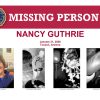
The UK government’s “stay local” instruction for outdoor exercise in England in its current form is “open to interpretation”, the policing minister has said.
Kit Malthouse suggested it should be common sense to define what staying local meant, but admitted the rules were open to interpretation.
He said: “What we are asking people to do is when they exercise to stay local. Now, local is, obviously, open to interpretation, but people broadly know what local means. If you can get there under your own steam and you are not interacting with somebody … then that seems perfectly reasonable to me,” he told Sky News.
Malthouse was responding to reports that Boris Johnson was seen cycling seven miles from Downing Street in the Queen Elizabeth Olympic park in Stratford, east London, for exercise.
His comments came as the Metropolitan police commissioner, Cressida Dick, called for clarity on the rules around staying local. Speaking on BBC Radio 4’s Today programme, Dick said the rules needed to be clarified. She said that in the last year “countless changes” to the coronavirus restrictions people were living under had caused confusion for both the public and frontline police officers. “It can be complex to know exactly what the regulations are,” she said.
Asked how she would define staying local, Dick said the term was both relative and commonsensical. “For me, a reasonable interpretation of that is that, if you can – and I appreciate some people can’t – go for your exercise from your front door and come back to your front door.”
She stressed that she appreciated this definition of local would be complicated for some people, for instance those who have to drive to get to where they walk their dog, and not everybody would be able to do this.

The police chief refused to comment directly on Johnson’s east London bike ride, saying only that it was “not against the law”. Pressed that the prime minister was a role model, Dick added: “The public are looking to all of us as role models, for all of us in public life, if you like.”
She suggested a tighter definition from the government of what constituted local exercise for England, as has been set out specifically and measured in miles by the devolved administrations, would be helpful. “Anything that brings greater clarity for officers and the public, in general, will be a good thing,” Dick said.
Under the England rules, people with certain conditions or special needs such as autism are allowed to travel beyond their local area to exercise and can do so several times a day.
In Scotland, the guidelines state that local outdoor exercise should “start and finish at the same place (which can be up to five miles from the boundary of your local authority area) as long as you abide by the rules on meeting other households”. In Northern Ireland, people “should not travel more than 10 miles from your home in order to take exercise”.
In Wales, there is no legal limit in the guidance on exercise but people are encouraged to stay as close to home as possible. The advice states: “Your exercise should start and finish from your home and you should exercise alone or with a member of your household or support bubble.”
Scientists and politicians have expressed concerns over higher levels of public activity than during last year’s spring lockdown. Fears over public non-compliance are being compounded by the increasingly alarming situation in England’s hospitals, with rates of infections, hospitalisations and deaths putting the NHS under unprecedented strain.
Dick said the Met would move more quickly to enforce of the regulations amid the health crisis. “We’ll explain, we’ll encourage, but where somebody is breaking the law, the regulations, and it’s absolutely clear they must know, we’ll move very swiftly to enforcing and fining people,” she said.























































Свежие комментарии